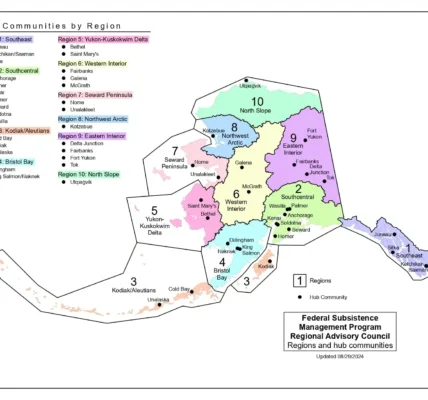The 10th anniversary of the Eastern Economic Forum (EEF) in Vladivostok wrapped up on September 7, 2025, with a series of discussions aimed at fostering cooperation between Russia and countries in the Asia-Pacific region. The main theme of the event, “The Far East: Cooperation for Peace and Prosperity,” centered on mutual development and the strategic importance of regions like the Arctic. Over 70 countries participated, marking the anniversary forum as one of the most significant in the event’s history.
China’s Support and International Participation
The forum, which ran from September 3 to 7, 2025, saw participation from more than 70 countries and territories. Prominent delegations came from Vietnam, India, China, Laos, Malaysia, and Thailand, underscoring the significance of the Asia-Pacific region in shaping Russia’s future economic and geopolitical landscape. Chinese Foreign Ministry spokesperson Mao Ning affirmed China’s continued support for Russia in hosting the event. In 2024, the EEF saw 7,100 participants from 75 countries, including representatives from nations unfriendly to Russia such as the United States, Germany, and Japan.
Business dialogues at the forum focused on expanding trade relations and cooperation, particularly between Russia and key Asian economies, including China, India, Myanmar, and ASEAN nations. The event’s impact was expected to surpass previous years, with hopes that more agreements would be signed in 2025 than the 313 concluded in 2024, amounting to over 5.5 trillion rubles.
Arctic at the Forefront of Discussion
Among the critical topics at EEF-2025 were issues concerning the Arctic, a region of growing global interest due to its vast resource base and strategic position for trade routes. Russia, which holds a significant portion of the Arctic region, has been positioning the area as one of its key development zones. The country aims to establish the Russian Arctic as a thriving, prosperous area that reflects traditional Russian values while becoming increasingly integrated into the global economy.
Sessions on the Arctic discussed a variety of issues, including the need for innovative approaches to scientific collaboration, technological advancements, and the implications of climate change. As global warming continues to reshape the region, the need for sustainable development strategies and international cooperation became more pressing. Participants recognized that Russia’s Arctic development was not only vital to the country’s economy but also had broader implications for global trade, particularly in shipping and energy resources.
Shifting Arctic Cooperation: BRICS and ASEAN’s Role
A pivotal discussion at EEF-2025 was the evolving role of the Arctic Council and the emerging partnerships between Russia and countries in the BRICS and ASEAN blocs. The Arctic Council, once a central forum for international collaboration on Arctic issues, has been undergoing strain due to geopolitical tensions. In its place, Russia has been exploring new avenues of cooperation, particularly with its BRICS and ASEAN partners, to ensure continued progress in the region.
As the scientific and technological landscape evolves, the Asia-Pacific region is increasingly becoming a hub for innovation. In this context, Russia is focusing on strengthening its scientific and technological ties with countries in the BRICS and ASEAN groups, seeking to develop new frameworks for collaboration in Arctic exploration and resource management. Discussions centered around how Russia could navigate sanctions pressure and foster stronger ties with new strategic partners in science and technology.
Emergency Monitoring in the Far East and Arctic
Given the geopolitical significance of the Far East and the Arctic, one of the key sessions at the forum focused on the development of emergency monitoring and forecasting systems. The Far East, particularly vulnerable to climate change, requires robust infrastructure to predict and mitigate natural disasters that could disrupt its growing economic activities.
Experts at the forum discussed the challenges of forecasting emergencies in a region that faces severe climate anomalies. With the Arctic and Far East regions becoming increasingly important for resource extraction and shipping, ensuring the safety of infrastructure and populations in these areas was deemed a top priority. Panelists addressed the growing need for sophisticated technologies to monitor environmental changes and respond to natural disasters.
Climate Change Risks and Adaptation Strategies
The issue of climate change was another major theme at the forum, particularly the impacts on permafrost, which covers much of Russia’s territory, including parts of the Arctic and the Far East. The degradation of permafrost presents a unique set of challenges, not only for infrastructure but also for the environment and economy. Experts discussed how the national and international regulatory frameworks around carbon emissions could help mitigate these risks, while still fostering growth in these crucial regions.
The session on “Business in the Climate of Tomorrow: Risks and Adaptation” focused on how businesses could adapt to the challenges posed by climate change without losing their competitive edge. Experts emphasized the importance of decarbonization strategies and risk management in the face of environmental uncertainty. Participants debated whether it was possible to accurately quantify climate risks and how to adapt business models to ensure long-term sustainability.
Regional Adaptation: Russia’s Climate Compass
As part of the broader climate discussions, the forum also delved into Russia’s national adaptation strategy, particularly its regional approach to climate change. The country’s Arctic and Far Eastern regions face unique challenges in terms of environmental adaptation, with varying needs across different federal subjects. Participants discussed how to align national, regional, and corporate strategies for climate adaptation and the role that technological advancements play in this process.
A key focus was on the coordination of adaptation policies between federal and regional authorities, with the aim of ensuring that local governments have the necessary tools to respond effectively to the challenges of climate change. Technological solutions for environmental assessment and data management were identified as critical to improving the quality of life in these regions, where climate change is already beginning to have a noticeable impact on everyday life.
Looking to the Future: Strengthening Partnerships

Location: Vladivostok, FEFU
Author: Anna Aleksashkina
As the 10th Eastern Economic Forum concluded, the discussions underscored the importance of continued cooperation between Russia and its Asia-Pacific neighbors, particularly in relation to the Arctic. With growing challenges in climate change, resource management, and geopolitical tensions, the need for multilateral collaboration has never been more urgent. The forum highlighted that the path forward lies in building resilient, sustainable partnerships that can adapt to the changing global landscape.




